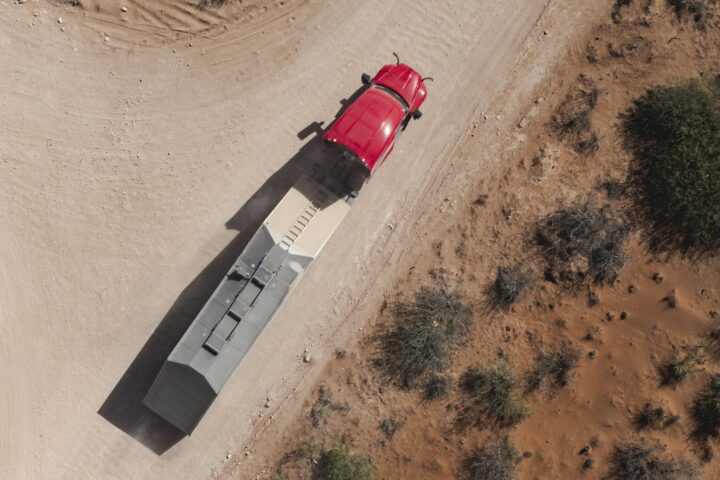The Interim Reciprocal Procurement Policy, recently tabled by the federal government, could direct the government to prioritize purchasing trucks, trailers and other transportation equipment that’s made in Canada.
The Public Services and Procurement Canada (PSPC) department handles such purchasing, and under the policy, it would be directed to avoid buying from companies in countries that do not have free trade agreements with Canada, or respect existing ones.
“This measure aims to give priority to Canadian suppliers as well as reliable trading partners who offer fair access to their markets, in accordance with existing free trade agreements,” reads a press release issued by the Canadian government.
Quebec’s Minister of Government Transformation, Public Works and Procurement, Joël Lightbound, added this about the measure, which has been in effect since July 14: “The Reciprocal Procurement Policy will allow us to use our purchasing power to support Canadian businesses and workers affected by unjustified U.S. tariffs.”
Several equipment makers with production in Canada stand to benefit.

Manac
Manac remains Canada’s largest producer of trailers, though there are many smaller manufacturers based here as well.
In an interview with French-language sister publication Transport Routier, Manac’s president and CEO, Charles Dutil, welcomed Ottawa’s desire to give priority to Canadian companies and those friendly to Canada, without, however, harboring too many illusions.
“It’s not like it’s going to change our lives,” he says, putting into perspective the volume of trailers his company can expect to sell to the government each year.
But he likes the signal it sends to all economic players in the country, including trucking companies.
“We appreciate every effort the government makes to promote economic activity in Canada,” he said. According to Dutil, it’s a kind of “side effect” that Manac could benefit from this local purchasing policy.
His calculation is that if the Carney government succeeds in reviving the Canadian economy, people will buy more goods and these goods will inevitably be transported by trucking companies that will need trailers.

Hino
Hino’s Woodstock assembly plant in Ontario is more than 180,000 sq.-ft. and employs more than 100 workers.
The company could undoubtedly benefit from a boost from the Canadian government through purchases of its medium and heavy-duty trucks manufactured here and intended for various federal departments.
The company, which celebrated its 50th anniversary in Canada in 2024, didn’t wait for Donald Trump’s election as president to assert its Canadian presence. For years, Hino has been promoting the slogan “Made by Canadians, for Canadians.”
“Hino’s commitment to local assembly reflects its dedication to Canadian businesses, ensuring that every truck is designed with the needs of drivers in mind,” Hino Canada writes on its website.

Paccar
Although recently challenged by a new round of layoffs, the Paccar plant in Sainte-Thérèse, a suburb north of Montreal, remains the largest truck assembly site in Canada. It produces medium-duty trucks for the Kenworth and Peterbilt brands.
A significant portion of production is headed to the U.S., but plant manager Steve Anctil would like government authorities to ensure that more trucks assembled in Sainte-Thérèse travel the roads of Quebec and Canada.
“We hope that the government will take measures to stimulate local purchasing and offer more flexibility to organizations,” the plant manager told the daily La Presse earlier this month.
The federal government has just taken part of the road, but if the Quebec government were to also relax its rules, it could open the doors to the lucrative municipal truck market more widely for Paccar Sainte-Thérèse.
Currently, a municipality cannot choose a specific truck brand. Calls for tenders can only specify technical performance expectations, regardless of the vehicle’s origin.
Union says more must be done
Unifor, the union representing workers at the Paccar plant, has given the Canadian government’s local purchasing policy a mixed reception.
“Unifor welcomes the progress represented by the interim regime. It is a step in the right direction,” spokesperson Sophie-Rose Surprenant-Paulhus wrote in an email to Transport Routier.
“However, we believe this measure may not be sufficient and raises certain issues. For example, it also allows third-party countries with which we have agreements to obtain contracts, which calls into question the real priority given to Canadian products,” added the union spokesperson. “As long as public administrations are subject to lowest bidder policies, there is no indication that Canadian suppliers will be prioritized. In this context, in the case of Paccar, the interim regime represents a step in the right direction, but it cannot be sufficient in its current form.”









